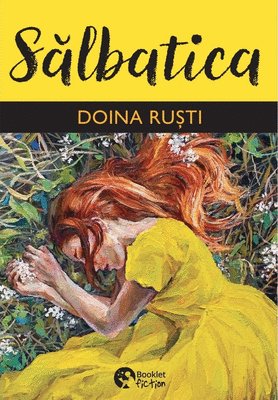
The Wild Girl is a YA historical novel set in 1953, during the Stalinist deportations to Romania’s Bărăgan Plain—an episode often referred to as the "Romanian Siberia."
Booklet
“The Wild Girl”
65,000 words
Synopsis
The novel is divided into 3 parts:
I. The Encounter
Renți’s Book
Comrade Stalin.
I. The Encounter
Tavi, a 14-year-old boy, eagerly anticipates his last summer vacation before high school. While he shows an affinity for literature, mathematics feels like an insurmountable challenge. Nevertheless, he is determined to move to the city and pursue his studies, especially since his father—a Miliția officer in a small village on the edge of the Bărăgan Plain—is making every effort to help him get into a good high school.
Beyond their home stretches the desolate, wind-swept plain. Paradoxically, it is in this vast wilderness that Tavi encounters a mysterious figure: a wild girl. She doesn’t speak and seems unable to understand his language, yet she comprehends the language of mathematics. Numbers and algebraic equations become the bridge that connects them.
II. Renți’s Book
In another part of the country, Renți, a 14-year-old girl, is also preparing for her high school entrance exams. Her life changes dramatically with an unexpected knock at the door. Suddenly, Renți loses her name, identity, and personal history. Her family is deported to a barren, uninhabited stretch of the Bărăgan Plain—a place devoid of houses, animals, or plants. For hundreds of kilometers, there is only the relentless wind sweeping over an empty land.
Yet human inventiveness knows no bounds, especially when survival is at stake.
The lives of these two teenagers converge during the scorching summer of 1953. Told from dual perspectives, the story unfolds in a divided world, where events are perceived differently depending on which side one stands.
III. Comrade Stalin
In 1953, Stalin died, marking a turning point that reshaped life in all Soviet countries. A year later, Tavi encountered the wild girl under unexpected circumstances.
Historical Context
The novel is inspired by the Stalinist period, during which tens of thousands of Romanians were deported to the Bărăgan Plain— also referred to as the "Romanian Siberia." The deportations primarily targeted foreigners (refugees of German, Macedonian, Serbian, Bulgarian, and Italian origin) and those suspected of harboring bourgeois or anti-communist views.
However, many were deported by mistake or fell victim to personal vendettas. Among the deportees were peasants, small merchants, musicians, historians, teachers, writers, petty traffickers, thieves, and honest people alike. Entire families—children, the elderly, and everyone in between—were uprooted and sent to desolate settlements in the Bărăgan.
One such settlement, Măzăreni, became a lasting symbol of this dark chapter in Romanian history. The settlement remains on the map to this day, a living reminder of the tragedy that unfolded there. In total, around 200 such settlements were established across the Bărăgan, each heavily guarded by the Miliția.
Plot Themes
Set against a backdrop of social chaos and displacement, “The Wild Girl” explores themes of identity, resilience, and human connection in the face of political oppression. The story follows two teenagers, Tavi and Renți, whose lives intersect during a time when entire communities were uprooted and sent into exile.
Amidst exile and shattered futures, many deportees lost their homes, families, and the chance to pursue an education. For the young, life was put on hold. Yet, even in this harsh landscape, the novel reveals the enduring power of human connection and the will to rebuild.
Narrative Style
“The Wild Girl” is a novel told from dual perspectives, weaving together two parallel journeys in a thriller-like narrative. The story captures the stark contrasts of a divided world—where events are perceived differently depending on which side of history one stands.
The novel is written in a realist style, blending historical accuracy with suspense and intrigue. Despite its harrowing backdrop, the story concludes with an unexpected and optimistic ending.
Trans Alina Gabriela Ariton